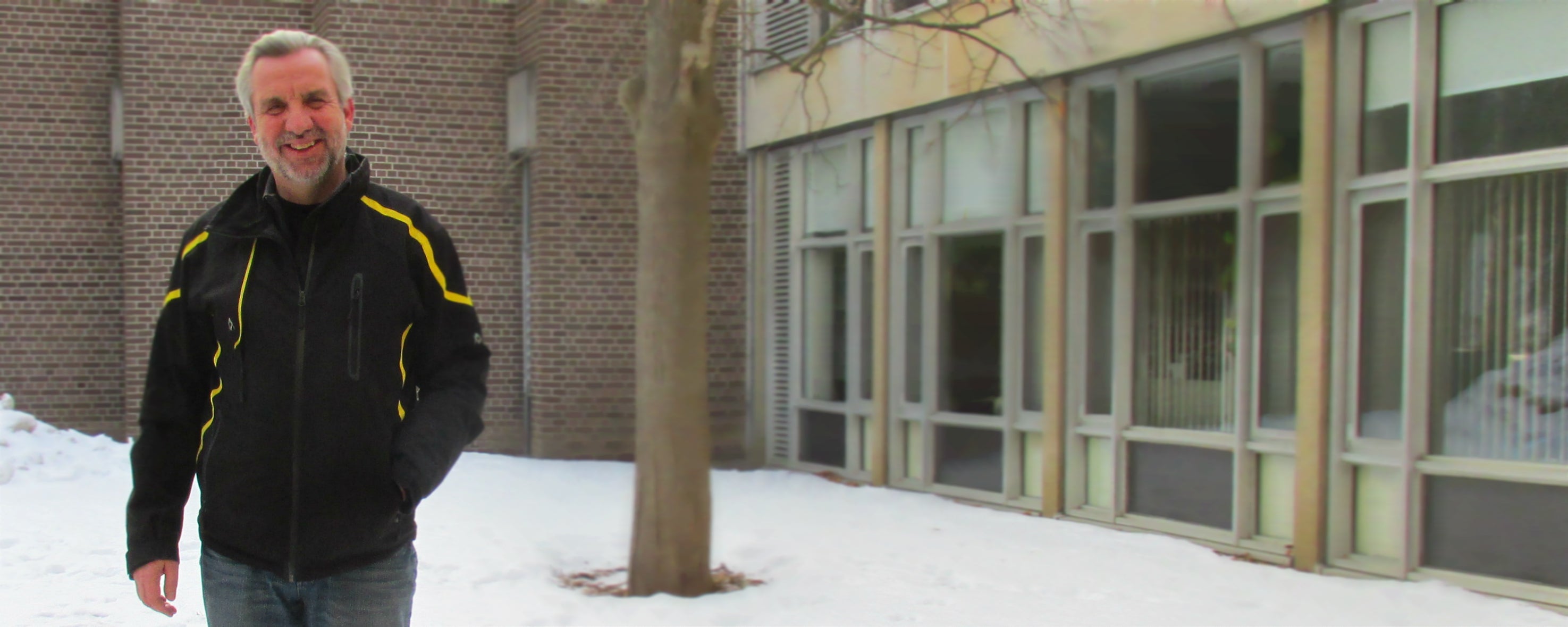Mat Schulze: Big Changes, Stück für Stück
 |
|
Mat Schulze, Department of Germanic and Slavic Studies |
Written by Kelly Stone, Special Projects (Teaching Stories), CTE.
(UPDATE: Mat is now teaching at another institution)
For many youths, choosing a career path takes time as they consider a variety of options. On the other hand there is Dr. Mat Schulze, who knew as a young teenager that teaching was the path he wanted to pursue. Explaining ideas came easy to Schulze and he was often told by others that teaching would be in his future. Now, after 13 years of teaching in Waterloo’s Department of Germanic and Slavic Studies, ten years prior at universities in England, and an education in Germany before that, you might say that Schulze was destined to be a professor.

Schulze notes that many students undertake his courses in grammar or linguistics with some trepidation, believing that the material will be dry. By the end of the course, however, he finds that those same students report that the material is actually quite interesting. Facilitating this shift in attitude is one of the things that Schulze enjoys about teaching. He also finds it rewarding “when people come back after the fact or you hear or see that they have succeeded with something that is related to what I have taught them.” Like most instructors, Schulze finds the success of past students to be an incentive for striving to teach as effectively as possible and for continually refining his teaching practice.
As an editor and contributor of the Computer Assisted Language Instruction Consortium (CALICO) Journal, Schulze often collaborates with other scholars. When asked about what it is like working with other authors, Schulze explains that “collaboration requires a lot of trust but you end up with a better outcome.” This cooperation is also reflected in Schulze’s courses, where he has his students engage in collaborative writing projects. In his most recent graduate course, relating to language islands, students were asked to create wiki pages on course concepts and then encouraged to edit and develop each other’s sites. This editing was tracked directly on the wiki page, allowing Schulze to monitor each student’s level of collaboration.
In relation to applied linguistics, Schulze works in a field known as Intelligent Computer-Assisted Language Learning (ICALL). Schulze’s work on ICALL, which provides students with preemptive feedback based on their previous submissions, has a strong connection with his teaching. By using ICALL, students can receive the appropriate personalized feedback they need to improve their writing, which is especially beneficial for those who choose to take online language courses.
In the hands of someone like Schulze, technologies like ICALL can transform how students learn new languages. CTE Faculty of Arts Liaison, Kyle Scholz – who is a former student of Schulze – explains that Schulze has “blended research into the pedagogy of second-language development with engaging course design, constructing a motivating and conducive learning space for students.” For Schulze, the ongoing evolution of his teaching practice recalls a piece of advice one of his former professors gave him: “It’s reasonable to change 10% at a time. I don’t believe in wholesale change. But if I do this change every couple of years, those 10% increments add up to something very significant.”
Read more Teaching Stories
More Resources
CTE has developed more than 100 Teaching Tips. Each one is a succinct document that conveys useful ideas and practical methods for effective teaching. Some of the Teaching Tips that are relevant to the strategies mentioned in this Teaching Story include the following: